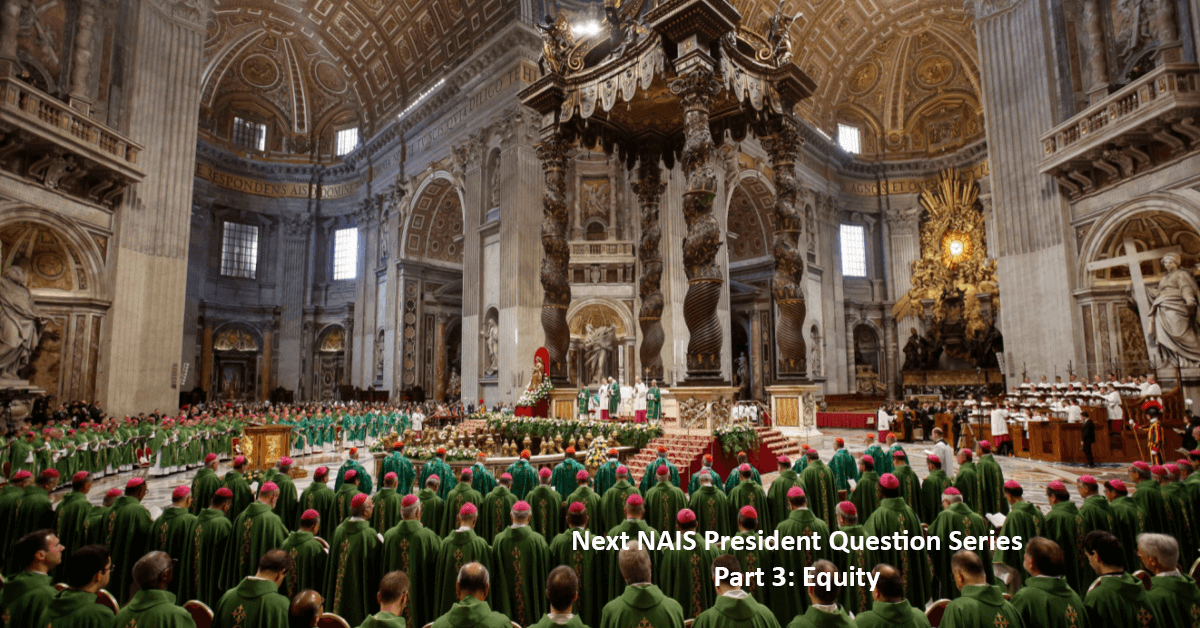August 16, 2022
Note from the editor: Most of our readers know that NAIS is searching for a new President. We would like the search to be a more open process, therefore subject to questions from independent school constituents. Consequently, we are publishing a series of articles with one question each to candidates for the next NAIS President. This series includes: 1. Next NAIS President Question Series | Part 1: On Curriculum & Knowledge | Sanje Ratnavale 2. Next NAIS President Series | Part 2: Supporting Teacher Voices | Alden Blodget
Today’s question: What is your definition of equity in the context of independent schools? Should independent schools be concerned about equity? If so, what are the challenges and solutions for independent schools in delivering equity? If not, why not?
In addressing this question, in addition to the broader question of how the school should act in a broader context, we would encourage future candidates for NAIS President to consider the matter from multiple perspectives:
- The school as a developer of students
- The school as an employer of faculty
- The school as the focal…


